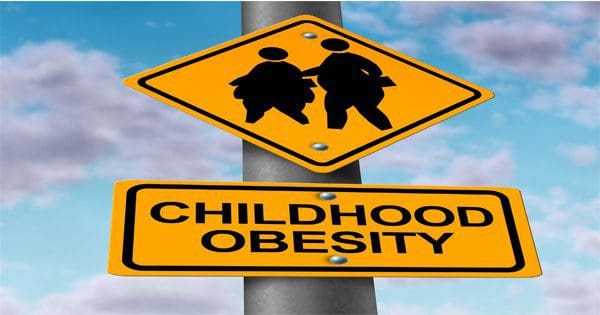Table of Contents
Overweight & Obesity Problems For Children & Teens?
In the United States, approximately 1 out of every 3 children and teens is overweight or obese. Children who are overweight or obese are at risk for serious health problems as they get older, including the following:
Severe obesity can cause liver problems and arthritis.
A child who is overweight or obese also may be teased or bullied about his or her weight, feel bad about his or her body, or feel isolated or alone. These feelings can interfere with a child’s ability to learn, make friends, and interact with others.
How Can I Tell If My Child Is Overweight?
As children grow and develop, some weight changes are normal. It may be hard for you to tell if your child is overweight. If you’re concerned about your child’s weight, talk to your family doctor. Your doctor can help determine whether your child is overweight by calculating his or her body mass index (BMI). BMI is an approximate measure of body fat. It is based on your child’s height and weight.
Many websites offer calculators to help adults determine their BMI. However, you should not use these calculators to determine your child’s BMI. Children’s BMI numbers are broken into categories called “percentiles.” Percentiles allow your doctor to compare your child with other children who are the same age, height, and sex. If your child’s BMI is higher than 85% of other children who are the same age, height, and sex, he or she is considered overweight. If your child’s BMI is higher than 95% of other children who are the same age, height, and sex, he or she is considered obese.
What Other Tests May Be Needed?
If your doctor wants to confirm that your child’s extra weight is related to having too much body fat, he or she may take skinfold thickness measurements. This is done by using a special tool called a caliper to measure the thickness of the fat at certain areas of the body (for example, the back of the upper arm or next to the belly button).
If your child has other symptoms in addition to weight gain, your doctor may do tests to see whether another health problem could be affecting your child’s weight.

Is My Child Overweight Or Obese Because Of Genetics?
Genetics can play a role in childhood overweight and obesity. Children who have overweight or obese family members are at greater risk of being overweight or obese. Often, genetics work in combination with environmental and behavioral factors. This means that a child’s eating and physical activity habits are just as important as family history in determining his or her weight.
Could My Child’s Weight Gain Be Caused By A Disease Or Hormone Imbalance, Or By A Medicine He Or She Is Taking?
In most cases, people who have a disease or a hormone imbalance will have other symptoms in addition to weight gain. Be sure to tell your family doctor if you have noticed any changes in your child, such as fatigue, constipation, or dry skin. This information will help your doctor evaluate your child’s weight gain.
Some medicines can contribute to weight gain. Your doctor also will want to know about any medicine your child is taking, including vitamins and herbal supplements. If your child gained weight after he or she began taking a medicine, let your doctor know.
Will My Child Grow Out Of Being Overweight As He Or She Gets Older?
Your child probably will not grow out of being overweight unless you help him or her learn to make healthier choices. Studies have shown that children who are overweight or obese are also more likely to be overweight or obese as adults.

Should I Consider A Weight-Loss Diet For My Child?
Do not put your child on a weight-loss diet without talking to your doctor first. Children need a certain amount of calories and nutrients to grow, learn, and develop.
What Can I Do To Help My Child Who Is Overweight Or Obese?
Teach your child that proper nutrition and regular physical activity are the keys to maintaining a healthy weight. These good habits also protect against the health, social, and emotional problems that may result from being overweight or obese.
As a parent or primary caregiver, you have a lot of influence on your child. He or she will follow your example, so it’s important for you to be a good role model. Healthy eating and physical activity should involve the entire family, not just the child who is overweight or obese. Try not to think of the changes you’re making as a temporary “diet” or “program.” You are developing lifelong habits to improve the health of your whole family.
Here are a few tips:
- Have healthy snacks (for example, fruits like apples and bananas, and raw vegetables like carrots and celery) readily available. Don’t bring unhealthy foods into your home.
- Include plenty of low-fat proteins, vegetables, and whole grains in the meals you make.
- Avoid fast-food dining. If you do eat at a fast-food or sit-down restaurant, choose the healthiest options available.
- Limit your child’s time using a TV, computer, cell phone, or game station to no more than 1 to 2 hours a day. Set a good example by limiting your own screen time, too.
- Encourage your child to find physical activities he or she enjoys and get active. Aim for at least 1 hour of active play every day.
- Make physical activity part of your whole family’s lifestyle. Take a walk, go for a bike ride, or do chores together. Plan active family outings.

Related articles
Post Disclaimer
Professional Scope of Practice *
The information on this blog site is not intended to replace a one-on-one relationship with a qualified healthcare professional or licensed physician and is not medical advice. We encourage you to make healthcare decisions based on your research and partnership with a qualified healthcare professional.
Blog Information & Scope Discussions
Welcome to El Paso's Premier Wellness and Injury Care Clinic & Wellness Blog, where Dr. Alex Jimenez, DC, FNP-C, a board-certified Family Practice Nurse Practitioner (FNP-BC) and Chiropractor (DC), presents insights on how our team is dedicated to holistic healing and personalized care. Our practice aligns with evidence-based treatment protocols inspired by integrative medicine principles, similar to those found on this site and our family practice-based chiromed.com site, focusing on restoring health naturally for patients of all ages.
Our areas of chiropractic practice include Wellness & Nutrition, Chronic Pain, Personal Injury, Auto Accident Care, Work Injuries, Back Injury, Low Back Pain, Neck Pain, Migraine Headaches, Sports Injuries, Severe Sciatica, Scoliosis, Complex Herniated Discs, Fibromyalgia, Chronic Pain, Complex Injuries, Stress Management, Functional Medicine Treatments, and in-scope care protocols.
Our information scope is limited to chiropractic, musculoskeletal, physical medicine, wellness, contributing etiological viscerosomatic disturbances within clinical presentations, associated somato-visceral reflex clinical dynamics, subluxation complexes, sensitive health issues, and functional medicine articles, topics, and discussions.
We provide and present clinical collaboration with specialists from various disciplines. Each specialist is governed by their professional scope of practice and their jurisdiction of licensure. We use functional health & wellness protocols to treat and support care for the injuries or disorders of the musculoskeletal system.
Our videos, posts, topics, subjects, and insights cover clinical matters and issues that relate to and directly or indirectly support our clinical scope of practice.*
Our office has made a reasonable effort to provide supportive citations and has identified relevant research studies that support our posts. We provide copies of supporting research studies available to regulatory boards and the public upon request.
We understand that we cover matters that require an additional explanation of how they may assist in a particular care plan or treatment protocol; therefore, to discuss the subject matter above further, please feel free to ask Dr. Alex Jimenez, DC, APRN, FNP-BC, or contact us at 915-850-0900.
We are here to help you and your family.
Blessings
Dr. Alex Jimenez DC, MSACP, APRN, FNP-BC*, CCST, IFMCP, CFMP, ATN
email: coach@elpasofunctionalmedicine.com
Licensed as a Doctor of Chiropractic (DC) in Texas & New Mexico*
Texas DC License # TX5807
New Mexico DC License # NM-DC2182
Licensed as a Registered Nurse (RN*) in Texas & Multistate
Texas RN License # 1191402
ANCC FNP-BC: Board Certified Nurse Practitioner*
Compact Status: Multi-State License: Authorized to Practice in 40 States*
Graduate with Honors: ICHS: MSN-FNP (Family Nurse Practitioner Program)
Degree Granted. Master's in Family Practice MSN Diploma (Cum Laude)
Dr. Alex Jimenez, DC, APRN, FNP-BC*, CFMP, IFMCP, ATN, CCST
My Digital Business Card





